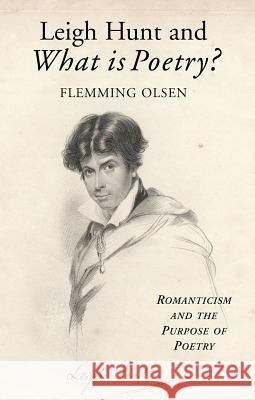Leigh Hunt & What is Poetry? : Romanticism & the Purpose of Poetry » książka
Leigh Hunt & What is Poetry? : Romanticism & the Purpose of Poetry
ISBN-13: 9781845194437 / Angielski / Miękka / 2010 / 71 str.
To most literary historians, the name of Leigh Hunt does not rank very high: he is mostly known as an idiosyncratic and mediocre poet, a versatile but slightly superficial critic, a man who taxed his friends patience to the utmost, and probably most of all the man who exercised an evil influence on Keats. However, there is much more to Hunt than has hitherto been written about him. He was a voracious reader who had a well-developed literary taste, and was a true democrat in that he wanted the interested layman to share the enthusiasm which the reading and apprehension of poetry had given him. Hence his essay What Is Poetry?, which, apart from comments of a more theoretical kind, contains numerous examples from several ages and languages of what in his opinion qualified as fine poetry. His essay is inscribed in the line of theoretical writing on poetry that inspired Shelley, Coleridge and Wordsworth to write their well-known treatises. Hunt distinguishes himself from those three in that his main emphasis is on the reader. What Is Poetry? is gently didactic in that it hopes that the reader would follow and benefit from his advice. Although not a text of sustained theoretical discussion, What Is Poetry? is, in its own idiosyncratic way, a valuable contribution to early 19th century literary criticism. Flemming Olsen provides a long overdue analysis and critique of the essay, which even today is widely read and available, and of Hunt s place in the Romantic movement as it sought to engage with the wider public. Hunt s achievement apart from his gift as a talent scout and his altruistic assistance to budding geniuses was that he strove to put his enormous, if erratic, learning at the disposal of ordinary people. This book is essential reading for all those engaged with poetry."











